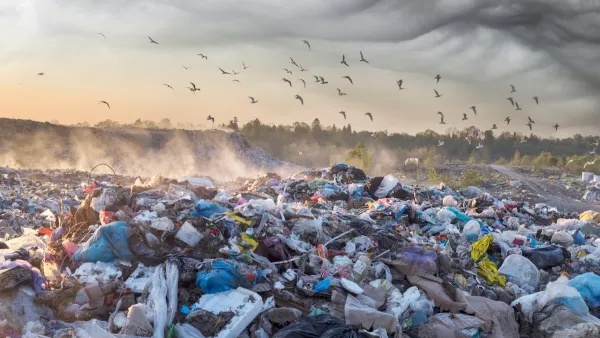A new IMF report recommends cutting energy subsidies globally to reduce overall fossil fuel emissions, reports Brad Plumer.
The IMF has issued a new report that breaks down the cost of direct and indirect energy subsidies by country and analyzes the impact that revoking these subsidies could have on the climate.
Overall, countries around the world directly subsidize $480 billion in energy consumption annually, with developing countries in North Africa and the Middle East providing the highest subsidies for gas and electricity and spending more on energy than public projects.
Accounting for the failure of countries around the world to tax carbon, the real figure is closer to $1.4 trillion.
The U.S., Russia and China provide the largest subsidies for fossil fuels annually, and out of these, China is the only one with a modest carbon tax in the works.
Revoking these direct and indirect subsidies could reduce greenhouse gas emissions by 13 percent globally, according to the IMF.
FULL STORY: IMF: want to fight climate change? Get rid of $1.9 trillion in energy subsidies.

Planetizen Federal Action Tracker
A weekly monitor of how Trump’s orders and actions are impacting planners and planning in America.

Maui's Vacation Rental Debate Turns Ugly
Verbal attacks, misinformation campaigns and fistfights plague a high-stakes debate to convert thousands of vacation rentals into long-term housing.

Restaurant Patios Were a Pandemic Win — Why Were They so Hard to Keep?
Social distancing requirements and changes in travel patterns prompted cities to pilot new uses for street and sidewalk space. Then it got complicated.

In California Battle of Housing vs. Environment, Housing Just Won
A new state law significantly limits the power of CEQA, an environmental review law that served as a powerful tool for blocking new development.

Boulder Eliminates Parking Minimums Citywide
Officials estimate the cost of building a single underground parking space at up to $100,000.

Orange County, Florida Adopts Largest US “Sprawl Repair” Code
The ‘Orange Code’ seeks to rectify decades of sprawl-inducing, car-oriented development.
Urban Design for Planners 1: Software Tools
This six-course series explores essential urban design concepts using open source software and equips planners with the tools they need to participate fully in the urban design process.
Planning for Universal Design
Learn the tools for implementing Universal Design in planning regulations.
Heyer Gruel & Associates PA
JM Goldson LLC
Custer County Colorado
City of Camden Redevelopment Agency
City of Astoria
Transportation Research & Education Center (TREC) at Portland State University
Jefferson Parish Government
Camden Redevelopment Agency
City of Claremont



























